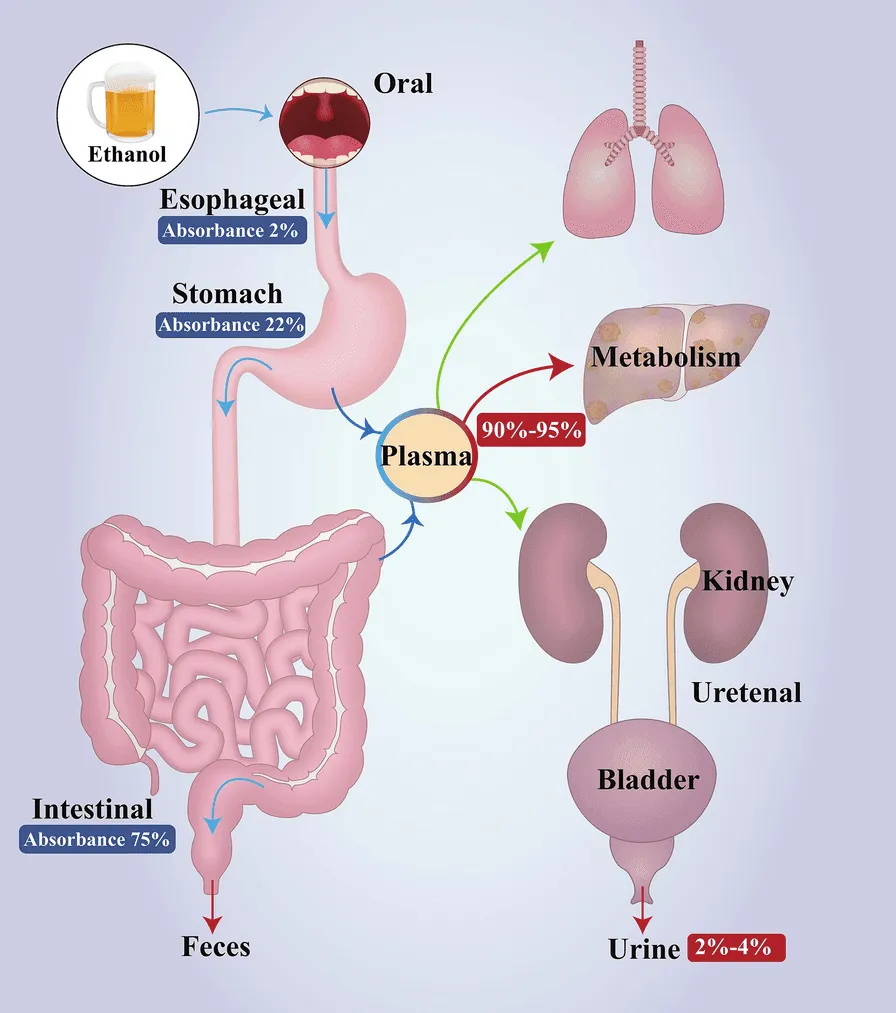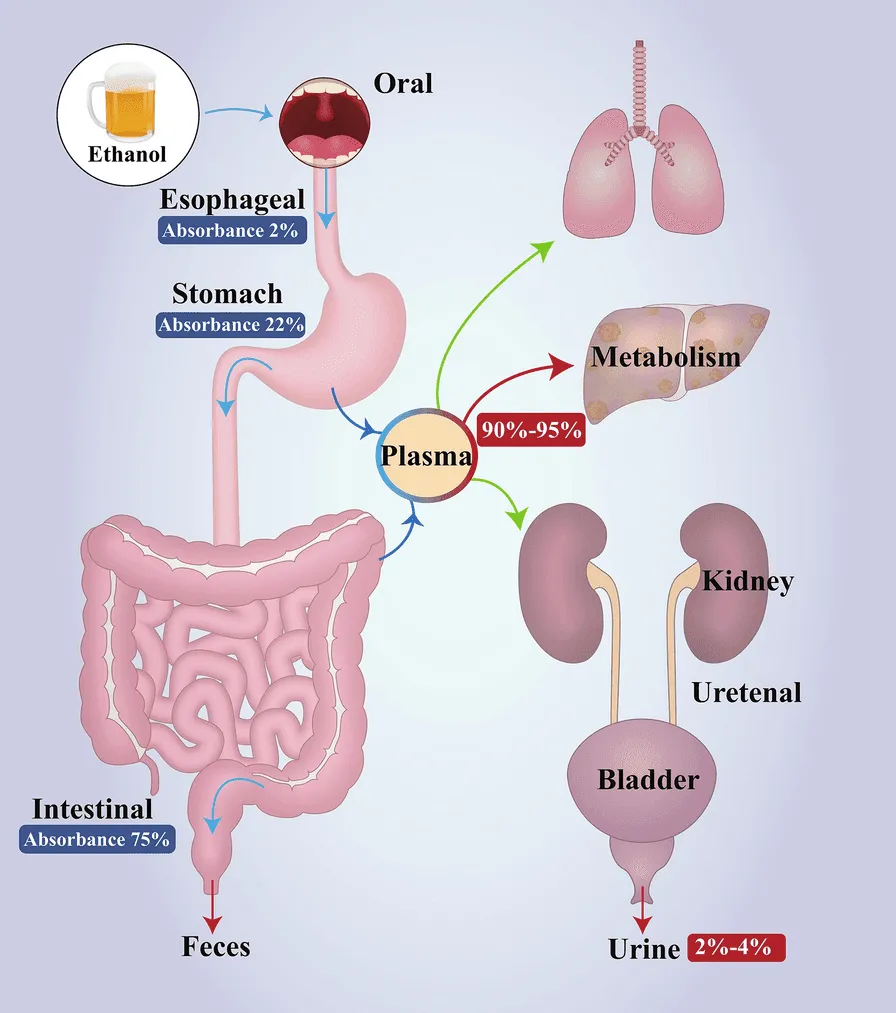
Have you ever wondered how slow digestion might be affecting your liver function? The intricate relationship between the digestive system and liver function is both fascinating and crucial to understand for those seeking to optimize their overall health and well-being. This article dives into how these two bodily processes are interconnected and what it means for you.

Understanding Digestion: A Brief Overview
To comprehend how slow digestion and liver function are connected, you first need to understand what digestion entails. Digestion is the process of breaking down food into nutrients, which the body uses for energy, growth, and cell repair. The process begins in your mouth and continues through the stomach, small intestine, and large intestine.
Key Stages of Digestion
Each stage of digestion plays a pivotal role in breaking down food. The mouth initiates digestion through chewing and saliva, the stomach churns food into a semi-liquid state, and the intestines further break down food with the help of enzymes.
Common Causes of Slow Digestion
Slow digestion, also known as gastroparesis, can be influenced by various factors, including diet, stress, and certain medical conditions. Foods high in fat and fiber may slow digestion because they are harder to break down. Additionally, stress and lack of physical activity can impact the speed of your digestive system.
The Liver: An Essential Organ
Your liver is one of the most vital organs in your body, responsible for numerous functions necessary for optimal health. It acts as a detoxifier, filtering out toxins from your blood, producing bile to aid digestion, storing nutrients, and regulating metabolism.
Key Functions of the Liver
- Detoxification: The liver processes and eliminates waste products and harmful substances.
- Bile production: Bile is essential for digesting fats.
- Metabolism regulation: The liver helps maintain energy levels by storing and releasing glucose.

How Slow Digestion Affects Liver Function
The relationship between slow digestion and liver function is profoundly interconnected. When digestion is sluggish, it can place undue stress on the liver, affecting its ability to function properly.
Impact on Detoxification
When your digestive process slows, the metabolism of waste products is delayed, potentially leading to toxin buildup. This increased workload can tax the liver, impairing its detoxifying abilities.
Role in Bile Production
Slow digestion can lead to insufficient bile flow, which is critical for digesting fats. Poor bile production puts extra pressure on the liver, which can impair the digestion process further and lead to indigestion and nutrient deficiencies.
Metabolism and Blood Sugar Regulation
A slowed digestive process can disrupt the liver’s ability to balance blood sugar levels. Prolonged imbalance may contribute to conditions such as insulin resistance or metabolic syndrome.
Managing Slow Digestion to Support Liver Health
The good news is there are ways you can manage slow digestion, which in turn may support better liver health. Implementing these practices into your daily routine can help alleviate stress on your liver.
Diet Adjustments
- Increase fiber intake: While high-fiber foods can slow digestion, they’re also essential for digestive health. Aim for soluble fiber (found in oats, apples, and beans) as it can aid digestion.
- Minimize high-fat foods: Reducing foods high in unhealthy fats can ease the digestive burden and support overall health.
- Stay hydrated: Proper hydration is key for digestion, helping to prevent constipation and aid in the movement of food through your system.
Physical Activity
Regular exercise can enhance digestion by promoting the movement of food through the digestive tract and reducing stress, which can be a factor in slow digestion.
Stress Management
Incorporating stress-relieving practices such as yoga, meditation, or deep breathing exercises can positively impact your digestive health.
Medical Consultation
Sometimes, slow digestion is a result of underlying medical conditions such as diabetes or hypothyroidism. Consulting with a healthcare professional can help you identify and address these issues effectively.

The Importance of Bile and Its Connection to Liver Function
To further understand the connection between digestion and liver function, it’s essential to delve deeper into the role of bile. Bile’s primary function is to break down fats into fatty acids, which can be absorbed into the body, making it indispensable in the digestion process.
Bile and Nutrient Absorption
Bile aids in the absorption of fat-soluble vitamins, such as A, D, E, and K. Slow digestion impairs bile secretion, potentially leading to vitamin deficiencies that can affect liver function.
Maintaining Healthy Bile Production
Supporting healthy bile production is crucial for optimal digestion and liver health. Foods rich in healthy fats, such as avocados and nuts, and those that naturally stimulate bile production, like beets and leafy greens, can be beneficial.
Understanding Liver Overload
When your liver is overwhelmed due to frequent detox demands or poor digestion, it becomes less efficient at performing its duties. Understanding the signs of liver overload is crucial for maintaining liver health.
Signs of Liver Overload
- Fatigue: Feeling unusually tired can indicate that your liver is overworked.
- Digestive issues: Frequent indigestion or persistent bloating may signal liver stress.
- Changes in stool: Changes in stool color, especially pale stools, can be a sign of bile deficiency.
Preventive Measures
To prevent liver overload and ensure optimal liver function, combine dietary changes with regular exercise and consider reducing alcohol intake, which adds significant stress to the liver.

The Connection Between Gut Health and Liver Function
A healthy gut is essential for proper digestion and liver function. The gut microbiome, a collection of beneficial bacteria in your intestines, plays an important role in maintaining both digestive and liver health.
The Role of Probiotics
Probiotics, found in fermented foods such as yogurt and sauerkraut, can enhance gut health by promoting a healthy balance of bacteria, which supports digestion and nutrient absorption.
Managing Gut Dysbiosis
An imbalance in the gut microbiome, known as gut dysbiosis, can impair digestion and affect liver function. Including prebiotic-rich foods like onions, garlic, and bananas in your diet can help maintain this balance.
Exploring Natural Supplements and Remedies
For those seeking to support digestion and liver function naturally, several supplements and herbs may offer benefits, though you should always consult with a healthcare provider before starting any new regimen.
Popular Supplements
- Milk Thistle: Known for its liver-protective properties, milk thistle can support liver health and help manage liver overload.
- Dandelion Root: This herb may help stimulate bile production and promote digestion.
- Turmeric: The active compound curcumin in turmeric has anti-inflammatory properties that can support liver function and digestion.
Herbal Teas for Digestion
Incorporating herbal teas like ginger, peppermint, or chamomile into your routine can aid digestion and might help reduce symptoms of bloating or discomfort.

Practical Tips to Enhance Digestive Health Daily
Here are some practical tips you can integrate into your daily routine to promote better digestion and liver function:
- Eat smaller, more frequent meals: This can prevent overloading your digestive system and help the liver process nutrients more efficiently.
- Chew your food thoroughly: Thorough chewing breaks down food more effectively, aiding digestion.
- Stay active: Incorporate movement into your day, even simple activities like walking, to boost digestion.
Conclusion: Your Path to Better Digestive and Liver Health
Understanding the connection between slow digestion and liver function is crucial for a holistic approach to health. By making informed choices about your diet, lifestyle, and potentially incorporating natural remedies, you can support both your digestive and liver health effectively. Remember, consistency is key, and small changes can lead to smoother digestion and improved liver function over time.